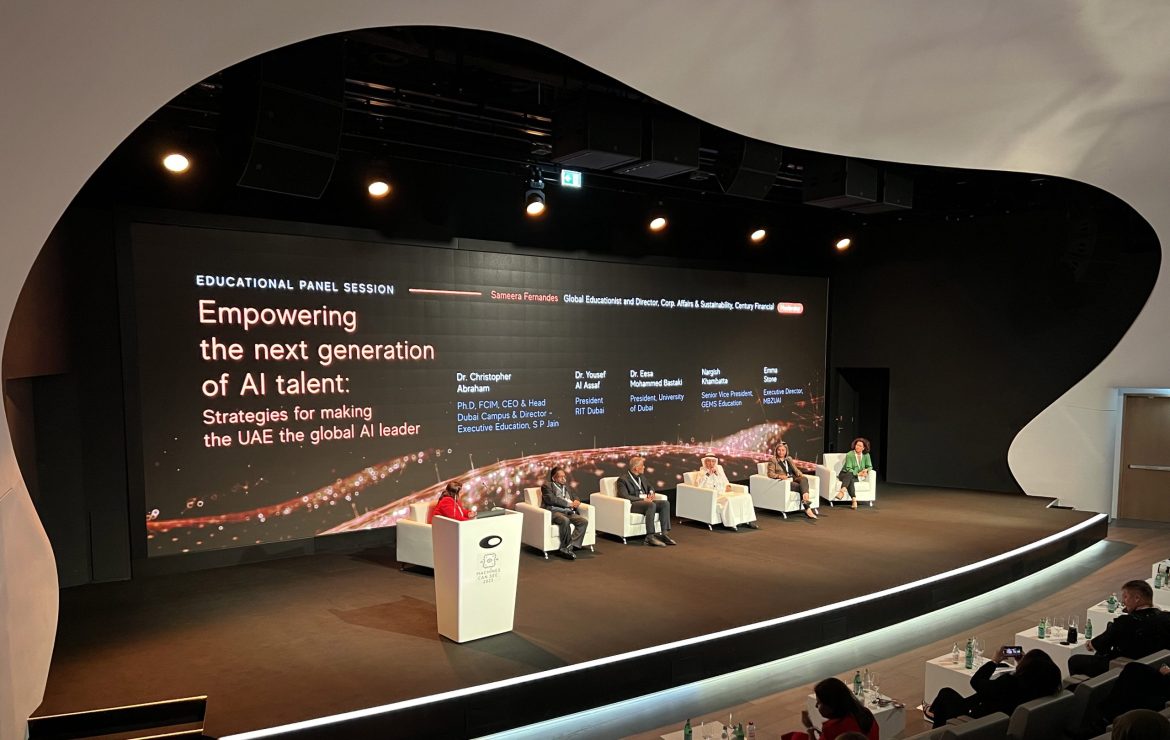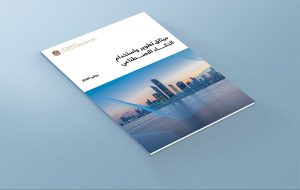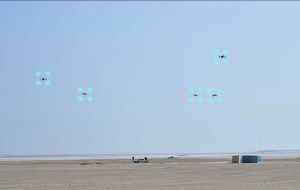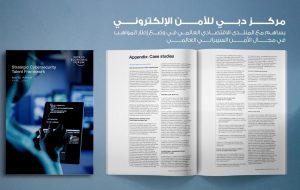The UAE government launched the ‘Machines Can See 2023’ Summit, one of the international conferences in Artificial Intelligence (AI) in the whole region, taking place at the Museum of the Future in Dubai, in partnership between Artificial Intelligence, Digital Economy, and Remote Work Applications Office and ‘Machines Can See’ company.
The Summit aims to convene an array of experts from around the world, discussing the future of AI and visualising this city as a place with the capability to envision, imagine and bring things to reality, which will contribute to the UAE’s acing the race of the countries in creating the next Silicon Valley.
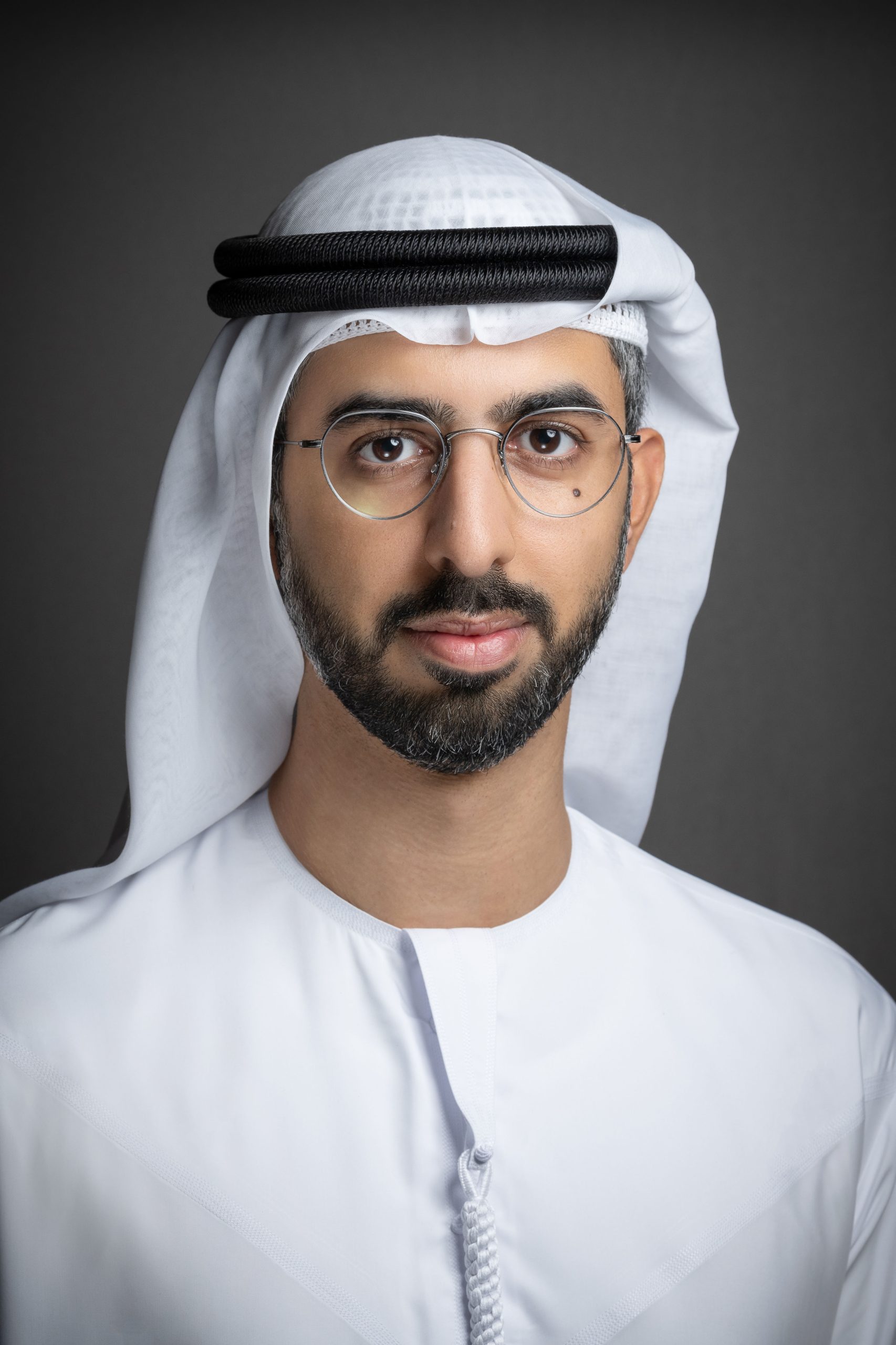
Commenting on the Event, Omar Sultan Al Olama, Minister of State for Artificial Intelligence, Digital Economy, and Remote Work Applications, emphasised that the UAE has established its status as the best hub for global conferences that specialise in future-oriented and technological fields and a global platform for experts, decision-makers, and academics specialised in these fields, facilitating positive transformations and comprehensive societal changes based on the UAE’s vision.
Al Olama further stated that hosting international conferences focused on future sectors in the UAE reflects the government’s commitment to accelerating the country’s plans for digital transformation. Additionally, by holding meaningful dialogues on artificial intelligence developments and rapid changes in technological fields, the country will create opportunities for new ideas and projects that enhance its leadership and contribute to achieving the goals of the National Strategy for Artificial Intelligence 2031.
Speaking at a panel discussion titled ‘Government, Business and Science’ at the ‘Machines Can See 2023’ summit, the experts conversed about the future of Artificial Intelligence (AI) in the UAE and its potential to become the next Silicon Valley.
Exploring the seamless possibilities of AI, policymakers from the public sector, businesses, and academia opined that the UAE is rapidly transforming its visions and solidifying its global status as a hub of advanced technologies, particularly in AI.
“We are privileged to host the ‘Machines Can See 2023’ summit in partnership with the Artificial Intelligence, Digital Economy, and Remote Work Applications Office. The name ‘Dub.ai’ reflects the UAE’s supportive environment for innovation and AI advancement for humanity’s benefit. We brought some of the brightest minds in the field to the prestigious Museum of the Future, sharing their powerful vision and knowledge,” said Alexander Khanin, founder and director of Polynome, which organised the summit.
“All cities around the world aspire to become the next Silicon Valley. However, to become that, a city needs to consider the factors contributing to the innovation ecosystem: a combination of talent, capital, private sector engagement, and commercialisation,” said Sharif El-Badawi, CEO of Dubai Future District Fund, during the discussion.
Elaborating on what more it would take for the UAE to create a Silicon Valley, El-Badawi said, “It is possible by finding a way to commercialise research and innovations in science and technology to create a successful ecosystem similar to Silicon Valley. The government, academia, and corporates also play important roles in creating an environment conducive to innovation,” he added.
“As the UAE has successfully attracted talent, it is now embarking on the journey towards perfecting knowledge creation and building technical capabilities. This is the next wave happening in the nation. Our efforts will unlock the potential within Dubai’s Government-related entities to create value-add tracks for technologists building in the region,” remarked El-Badawi.
Khalifa AlQama, Director of Dubai Future Labs, said that technology is the most crucial enabler. “The most critical aspect is the business value brought by having all the localised infrastructure, which can enable AI adoption as an enterprise. We have established an AI ecosystem, a localised service stack to assist organisations in modernising data. We need to assist organisations on the ground to modernise their data best and prepare the data for the AI.”
“Organisations can modernise their data, which is more of a problem than AI itself. If you can address that problem, AI will probably have the right food to eat in general, the expected outcomes. Each vertical has its appetite, be it banking, finance, healthcare, education, or the government, which always takes the lead with their mandates defined,” he added.
The fact that the UAE is the only country with a state-level AI Programme is a testament to its commitment to supporting the progress of AI technology.
The one-day summit has been hosted in collaboration with Dubai’s Department of Economy and Tourism, and Dubai Future Foundation, exploring current advancements of AI, its applications, and its future in the UAE and the rest of the world.
This year, the summit deliberated on the future of computer vision and machine learning with the foremost experts in 3D computer vision, deep learning, generative AI, Augmented Reality (AR), Virtual Reality (VR), and so on.
The summit featured a diverse range of presentations and panel discussions from experts like Hao Li, Associate Professor at the Mohamed bin Zayed University of AI; Marc Pollefeys, Director of the Microsoft Mixed Reality and AI Lab, Professor at ETH Zürich; Philip Torr, Professor at Oxford University, Co-Founder at Aistetic Oxsight, and Chief Scientist at FiveAI; Bernard S. Ghanem, Professor at King Abdullah University of Science and Technology; Fernando de la Torre, Professor at Carnegie Mellon University; Serge Belongie, Professor at the University of Copenhagen; Daniel Cremers, Professor at the Technical University of Munich, Director and Co-Founder at Artisense; Manohar Paluri, Senior Director at META; Dr. Abrar Abdulnabi, Head of AI at Saaal.ai; Kamran Ashan, Senior Director AI and Smart Data at Etisalat; and Alexei Posternak, Managing Partner at INTEMA.


